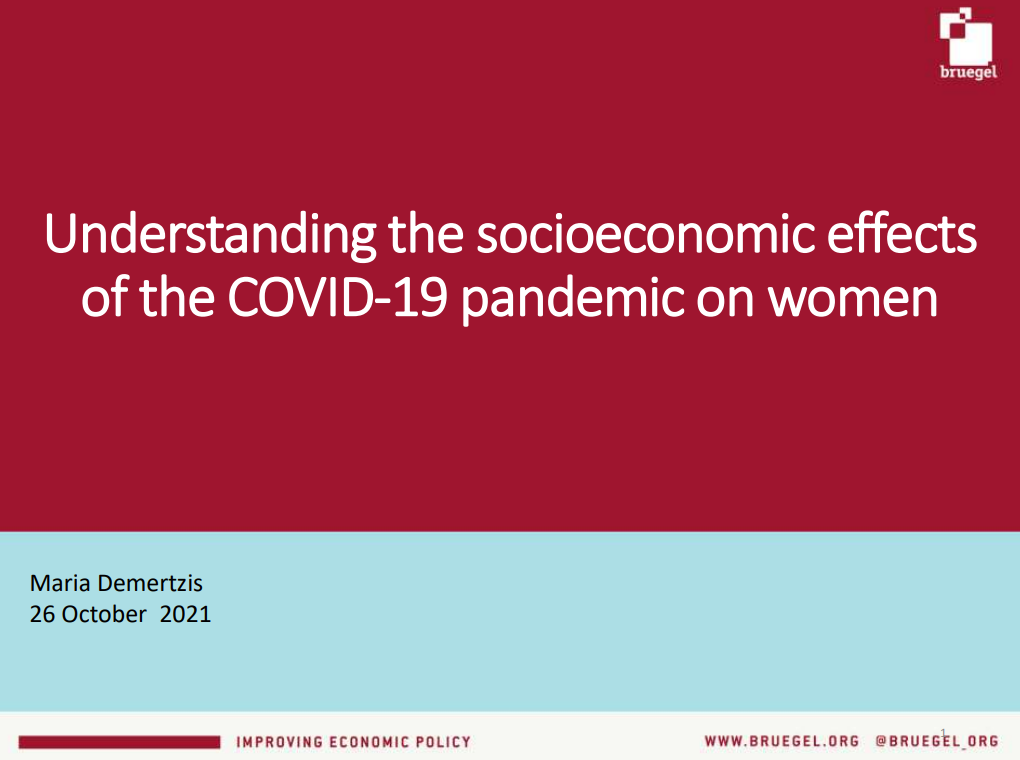Opinion
Addressing social problems should be at the heart of Europe’s economic strategy
Europe has overcome the most acute financial crisis. But failure to address more forcefully the growing social problems will undermine debt sustainability, the future prospects of a generation and support for one of the most important cross-border integration projects in history. A social revolt could well undo globalisation and undermine the basis of our prosperity.
See policy brief ‘Europe’s social problem and its implications for economic growth‘ and interactive map ‘Europe’s social polarisation and the generational struggle‘
This opinion has been published in Nikkei, Les Echos, Il Sole 24 Ore, Handelsblatt, Figelyo and others.
The priorities for European economic policy in the last few years have been to calm the sovereign debt crisis and to address the fragmentation of the financial system. But a bigger threat is stalking Europe: the risk of permanent social fragmentation that might well turn into a revolt against the political elites and end the support for European integration, open and global markets and the euro. Trust in the EU and for national governments has dropped almost everywhere since 2008, most dramatically in Cyprus, Spain, Greece and Portugal. A great majority of people – 80% according to Eurobarometer – also believe that poverty has increased in their own country. More than 6 million jobs have been lost in the EU since 2008 and material deprivation has increased substantially in the hardest hit countries, especially among the young.
The situation is not only appalling in itself and contrary to the goals set out in the European Union treaty, it is also an enormous economic black hole. Unemployment undermines growth because of the loss of important skills. In particular, youth unemployment has a lasting negative impact on productivity, health and educational performance. The countries of southern Europe and the Baltic states, which were hardest hit by the crisis, already had high levels of income inequality before the crisis. To compensate for inequality, some relied on excessive household borrowing. The resulting debt overhang continues to undermine growth. Policies that address unemployment, poverty and income inequality therefore promise increased growth, more sustainable public debt and greater social and political stability.
A priority is the reform of social security systems. Greece and Spain used around 16-18% of their GDP for social protection prior to the crisis, but this reduced income inequality by only 20% while Denmark and Sweden reduced their levels of income inequality by about 45% with the same proportion of spending. Clearly, significant efficiency gains are possible for the “Mediterranean” social model, including in France. Other national policies such as labour market laws also matter for social outcomes, and need continuous reform. On the composition of fiscal consolidation, the empirical evidence shows that pensions and spending on the elderly was preserved during the crisis, while budgets for education, families and children were cut quite substantially. Reviewing the balance of those spending cuts is indispensable to reduce the growing intergenerational divide.
A second priority is proper demand management in the EU. While fiscal consolidation in the EU crisis countries was unavoidable, no EU policy was put in place to compensate for the drop in demand. The euro area in particular needs to find ways to increase demand in Germany and other countries with fiscal space. In the crisis countries, unemployment benefits per worker were cut and the automatic stabilisers could therefore not play their full role. To avoid such pro-cyclical fiscal policy tightening, the EU needs to put in place a fiscal union, which could take the form of a common unemployment insurance scheme. An intermediate step to increase demand using European resources could be spending on common infrastructure projects financed by common project bonds.
Finally, tax systems need to be reviewed. In particular, the philosophy that lower top marginal tax rates result in great productivity benefits has been proved wrong. Increasing inheritance taxes and to some extent wealth taxes would allow some of the burden of overcoming the crisis to be shifted onto those who have been less affected. However, such policies require European coordination and a European approach to reduce avoidance via tax havens.
Europe has overcome the most acute financial crisis. But failure to address more forcefully the growing social problems will undermine debt sustainability, the future prospects of a generation and support for one of the most important cross-border integration projects in history. A social revolt could well undo globalisation and undermine the basis of our prosperity.
Republishing and referencing
Bruegel considers itself a public good and takes no institutional standpoint.
Due to copyright agreements we ask that you kindly email request to republish opinions that have appeared in print to [email protected].














